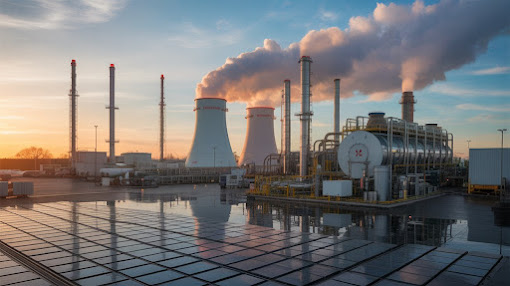Air Pollution, COVID Risk 🦠🌫️ Inequality #sciencefather #researchawards #airpollution #environmental
🏙️ Air Pollution, Environmental Vulnerability & COVID-19: Unmasking Hidden Health Inequities
As the COVID-19 pandemic unfolded, one unsettling truth became clearer: the pandemic did not affect everyone equally. In the densely populated streets of New York City, where environmental injustice and structural inequality intersect, researchers have now uncovered a disturbing connection between chronic air pollution exposure, neighborhood vulnerability, and COVID-19 health outcomes. 🧬💨
🔬 A Deep Dive into the Data
This comprehensive study assessed over a year’s worth of NYC COVID-19 hospitalization records (March 2020–February 2021), focusing on severe complications such as:
-
🫁 Acute Respiratory Distress Syndrome (ARDS)
-
🦠 Pneumonia
-
🛏️ Ventilation needs
-
💉 Dialysis requirements
Using residential ZIP Codes, the team matched each patient with long-term exposure data to air pollutants including:
-
PM2.5 (fine particulate matter) 🌫️
-
NO₂ (nitrogen dioxide) 🚗
-
Black Carbon 🖤
-
Ozone (O₃) ☀️
These pollutants, measured by the NYC Community Air Survey (2009–2019), offered a chronic exposure profile for each patient—an innovative approach that allows for more accurate modeling of long-term environmental impacts.
The analysis applied Modified Poisson and Cox regression models, adjusting for known risk factors such as age, BMI, smoking, asthma, diabetes, and hypertension. Crucially, the researchers introduced the Neighborhood Environmental Vulnerability Index (NEVI) to investigate how social and structural vulnerabilities might intensify health risks.
⚠️ Air Pollution’s Impact on COVID-19 Outcomes
Findings showed that higher exposure to NO₂, PM2.5, and black carbon was consistently associated with higher risks of:
-
ARDS 🫁
-
Pneumonia 🦠
-
Dialysis 🩸
In contrast, ozone exposure was inversely related, suggesting a more complex relationship possibly influenced by urban heat island effects, chemical interactions, or seasonal variables.
Most alarmingly, the effects were not evenly distributed. Among individuals living in highly vulnerable neighborhoods, the same levels of pollution led to significantly higher risks of complications.
➡️ Example: The link between chronic NO₂ exposure and pneumonia risk varied sharply across NEVI tertiles:
-
T1 (least vulnerable): aRR 1.13 (95% CI: 1.02–1.25)
-
T2: aRR 2.11 (95% CI: 1.73–2.56)
-
T3 (most vulnerable): aRR 6.36 (95% CI: 4.71–8.60)
This striking gradient demonstrates how environmental injustice acts as a multiplier of health risk in already disadvantaged communities. 💥🌍
🧪 Why This Matters for Researchers & Technicians
This study sets a new standard for how environmental and social determinants of health should be analyzed in tandem. For researchers and data scientists, it offers:
-
✅ A model for integrating environmental exposure data with health records
-
✅ Insight into adjusting for neighborhood-level vulnerability metrics
-
✅ A framework for identifying compound risk in vulnerable populations
For lab and field technicians working in environmental science, public health, or clinical research, the message is equally powerful: pollution data must be interpreted through a social equity lens. This demands higher granularity in measurement, deeper community-level mapping, and long-term tracking of outcomes. 🧭📊
🏥 From Science to Policy: The Path Forward
The implications go far beyond academia. Policymakers, urban planners, and healthcare systems must recognize that pandemic preparedness and pollution control are deeply intertwined. 🛡️
-
🧭 Target interventions to high-NEVI neighborhoods
-
💨 Improve air quality through stricter emission regulations
-
🏥 Boost healthcare access in structurally disadvantaged areas
-
🧰 Incorporate environmental metrics into hospital risk models
📢 Final Thoughts
This study reminds us that no one breathes air in isolation. In NYC and around the world, the intersection of pollution and poverty demands urgent, data-driven responses. As researchers and technicians, we stand at the frontline of translating science into equity—and that starts with understanding the full picture. 🧠📚🌎
Let’s innovate with empathy. Let’s research with justice. 💡⚖️
#socialdeterminantsofhealth #datascience #pandemicpreparedness #urbanhealth #climatejustice #hospital #respiratoryhealth #publichealth #health




Comments
Post a Comment